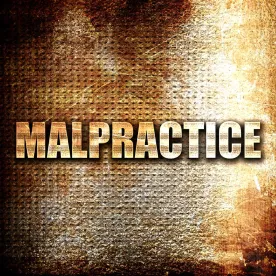Admiral Insurance Company v. Superior Court of San Diego County, 18 Cal.App.5th 383 (2017); Fourth Appellate District Court of Appeal, Division One, Case No. D072267 (December 12, 2017).
In Admiral Insurance Company v. Superior Court of San Diego County, the California Court of Appeal held that a professional liability policy did not provide coverage for a lawsuit where, prior to the inception of the policy, the insured knew, or could have reasonably foreseen, that a claim would be made.
The facts were undisputed. The insured, Perfect Match, matched surrogates and egg donors with infertile families. In June 2012, a lawyer sent three letters to Perfect Match alleging “medical negligence” and threatening to file a lawsuit on behalf of two former clients of Perfect Match. In October 2012, Perfect Match applied to Admiral for a liability policy. The application asked whether Perfect Match was “aware of any act, error, omission, fact, circumstance, or records request from any attorney which may result in a malpractice claim or suit?” Perfect Match responded “no” and did not otherwise disclose the threatened lawsuit.
In December 2012, Admiral issued a liability policy to Perfect Match providing coverage for certain claims made during the policy period arising from a “professional incident, … provided that prior to the inception date of the policy, no insured knew, nor could have reasonably foreseen, that the professional incident might result in a claim.” In March 2013, Perfect Match’s former clients filed the threatened lawsuit. Admiral denied coverage on the grounds that Perfect Match knew or should have known that the lawsuit would be filed.
Perfect Match then filed a bad faith lawsuit, and Admiral moved for summary judgment. Perfect Match’s opposition focused on the application form it was required to fill out. The application form was designed for “medical laboratories, medical imaging centers and blood plasmapheresis centers.” According to Perfect Match, because it was not a medical services provider, it truthfully answered “no” to the question whether it was aware of any potential medical malpractice claims. The trial court agreed that there was a question of fact about whether Perfect Match’s application was truthful and denied the motion for summary judgment.
The Court of Appeal reversed. It found Perfect Match’s application arguments to be a red herring. Even assuming that Perfect Match truthfully answered the application questions, the policy language clearly negated coverage for claims arising from a “professional incident” if, prior to the inception of the policy, Perfect Match “knew” or “could have reasonably foreseen, that the professional incident might result in a claim.” Because a lawyer had sent three letters to Perfect Match threatening a lawsuit, the Court of Appeal held that Perfect Match had been given “indisputable notice … that its professional services … ‘might result in a claim.’”


 />i
/>i

